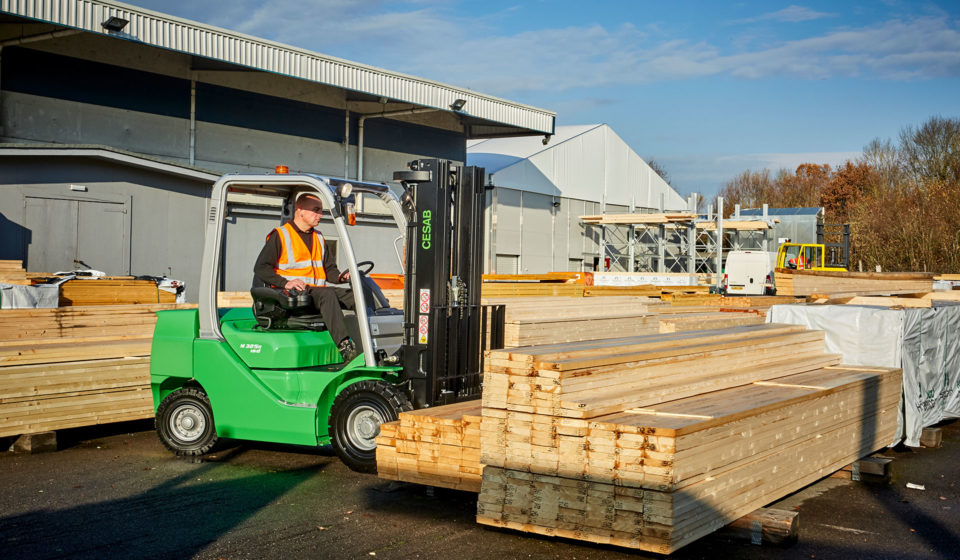Here are just a few of the frequently asked forklift truck safety questions coming out of lockdown
Should routine forklift truck maintenance still be carried out?
Now more than ever is a time to have a plan for our forklift trucks, it is essential to continue with regular maintenance and inspections of Material Handling and Plant Equipment and is fundamental to their safe use.
What happens if a thorough examination is due?
The equipment needs to be safe to use and free from defects as component failure can lead to accidents in the workplace. That is why we are still operational, carrying out forklift servicing, thorough examinations and repairs to help keep you up and running.
We are only running a skeleton staff, and not really using the forklift, does it still need to be serviced?
Routine servicing and statutory inspections are considered as essential ongoing activities for safety in the workplace and should not be deferred. If you are using your equipment we would advise that you keep up to date with all inspections and servicing.
If you are not using the equipment clearly label it out of use and leave it in a safe place.
Is forklift truck training still available?
Training is being carried out as normal as possible, within the government guidance, and is being recommended by the HSE as it is an important aspect of helping to keep people safe in the workplace.
Book your driver training with us today
We know there are many companies still operational whether it is operating at full capacity or on a reduced level and identifying what is an essential activity is difficult to try and prioritise. The Forklift Truck Association have worked closely with the Health and Safety Executive to provide guidance to help us all know what we need to do. In their statement attached they have highlighted that routine maintenance, inspections and repairs all categorised as essential ongoing activities and must remain in place in accordance with government guidance and not be deferred.
This is an extract from the full document,
Control measures around the use of Materials Handling Equipment and Plant Equipment should not be taken lightly. Its is an unfortunate truth that it is not an uncommon occurrence for these types of equipment to be involved in serious or even fatal accidents when they are not managed correctly as we’re sure you are all too aware as a responsible user. The ongoing scheduled maintenance, repair and statutory inspection of Materials Handling and Plant Equipment are fundamental to their safe use. By stopping these activities, users are at very serious risk of jeopardising the safety of their staff and any person the equipment interacts with. Failure to maintain, repair and inspect equipment within agreed guidelines leads to component failures, damage and ultimately accidents.
The Forklift Truck Association
Even though the HSE has indicated it will not take action over failure to carry out a thorough examination within the required period, the only way to be safe is to continue with the maintenance schedule already in place.
Forklift trucks are great tools in the workplace, they also can be dangerous as they account for 25% of injuries at work. Apart from regular training and supervision, it is important to check your forklift each time you operate it.
Inspecting your forklift daily is a good way to identify potential problems. Daily checks carried out before each shift in accordance with the vehicle handbook will help to assess if the forklift is safe to use and save you time and money over waiting to repair problems until they interfere with the operation of the machine.
Your forklift truck safety and maintenance checklist
- Damage to tyres, for example, nails, cuts and splits, check tyre pressures on pneumatic tyres
- A functional test on the brakes
- Check all fluid levels and top up where necessary
- The batteries of battery-operated lift trucks to check they are adequately charged and leak-free, the charger is switched off, the charge lead disconnected and properly stored, and the battery retention device is in place
- A functional test on systems for lifting, tilting and manipulation, including attachments
- A visual inspection of hydraulic systems to check for obvious leaks, and make sure hydraulic fluid levels are correct when the forks are in the parked position
- The condition and security of the overhead guard and load back-rest extension
- The forks, for cracks, particularly on the heels and mounting hooks, bent or damaged fork tips
- The chains, for secure anchor pins, fixing bolts, damaged or elongated links and lubrication
- Any audible warning signal, for example, a horn
- Lights, mirrors and any other visibility aids, if fitted
Improve your forklift truck safety today by contacting us for your driver training, servicing and repairs


